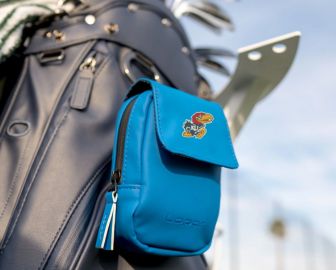How to Choose the Right Rangefinder Case:
When it comes to golfing, having the right gear can make a huge difference in your performance. One piece of equipment that often gets overlooked is the rangefinder. This device helps you measure distances to hazards, flags, and targets on the course. However, simply placing it in your golf bag isn't enough to keep it safe. A high-quality rangefinder case is essential for protecting your device and ensuring it's always ready for action.
Choosing the right rangefinder case can be challenging due to the many options available. From course conditions to personal preferences, several factors influence your choice. This guide will help you find the ideal case for your needs.
Consider Your Golf Course Conditions
The type of golf course you frequent plays a significant role in selecting a rangefinder case.
-
Wet or humid courses: Opt for a waterproof or water-resistant case. Look for durable zippers, tight seals, and weather-resistant materials to protect against moisture.
-
Dry and sunny courses: While weather protection is less critical, durability and accessibility remain important. A shock-resistant case with reinforced padding can help prevent damage from drops or impacts.
Evaluate Your Travel Habits
Your travel routine also affects your choice of a rangefinder case.
-
Frequent travelers: A compact and lightweight case with a carabiner clip or detachable strap is convenient for carrying your rangefinder securely.
-
Long-distance travel: Choose a case with compartments for accessories like extra batteries or cleaning cloths.
-
Air travel: Hard-shell cases provide the best protection against rough handling during flights.
Personal Preferences and Style
Style and convenience matter when selecting a case.
-
Design: Cases come in various colors, materials, and sizes. Some golfers prefer sleek and minimalist designs, while others opt for bold colors or unique patterns.
-
Ease of access: Cases with magnetic closures or quick-release mechanisms allow for swift retrieval of your rangefinder. If you value convenience, look for a case that enhances accessibility.
Look for Durability and Protection
Durability is a key factor in choosing a rangefinder case. A good case should provide ample protection against drops, scratches, and impacts.
-
Shock-absorbing features: Foam padding or reinforced corners help safeguard your device in rough conditions.
-
Sturdy construction: High-quality materials such as leather, nylon, or hard plastic enhance durability.
-
Reliable closures: Strong zippers, latches, or Velcro fastenings ensure long-lasting protection.
Size and Fit
Ensuring a proper fit is essential for effective protection.
-
A case that’s too tight can make it difficult to remove the rangefinder quickly.
-
A case that’s too loose may allow excessive movement, increasing the risk of damage.
-
Check the product specifications to ensure compatibility with your rangefinder model.
Conclusion
Selecting the right rangefinder case involves considering golf course conditions, travel habits, personal preferences, durability, and fit. By assessing your needs and choosing a case that offers the best protection, you can extend the lifespan of your rangefinder and enhance your golfing experience.
Whether you prioritize weather resistance, portability, or style, there's a rangefinder case that fits your lifestyle. Investing in the right case will help keep your gear safe and ready for years to come.

